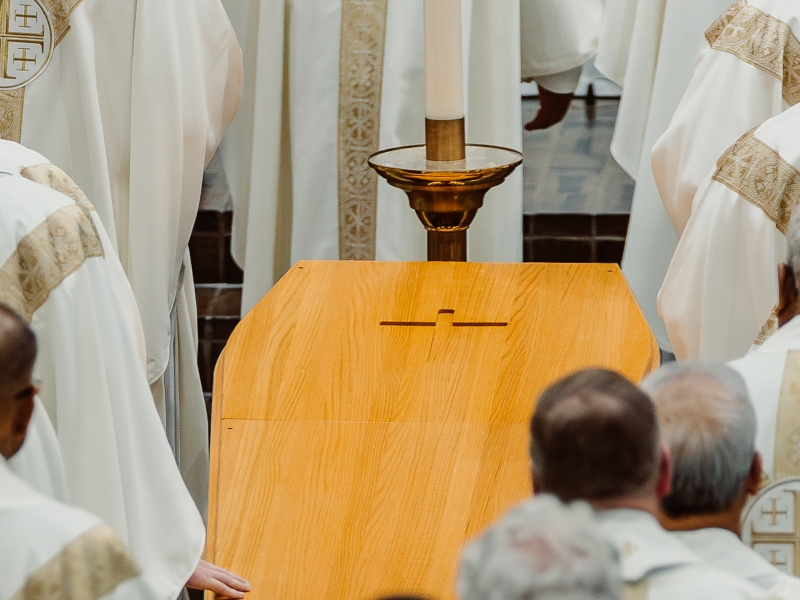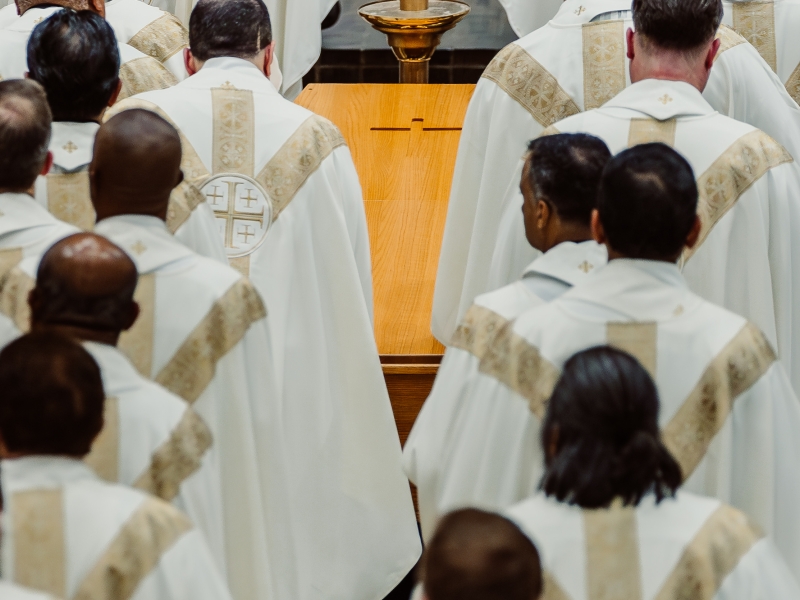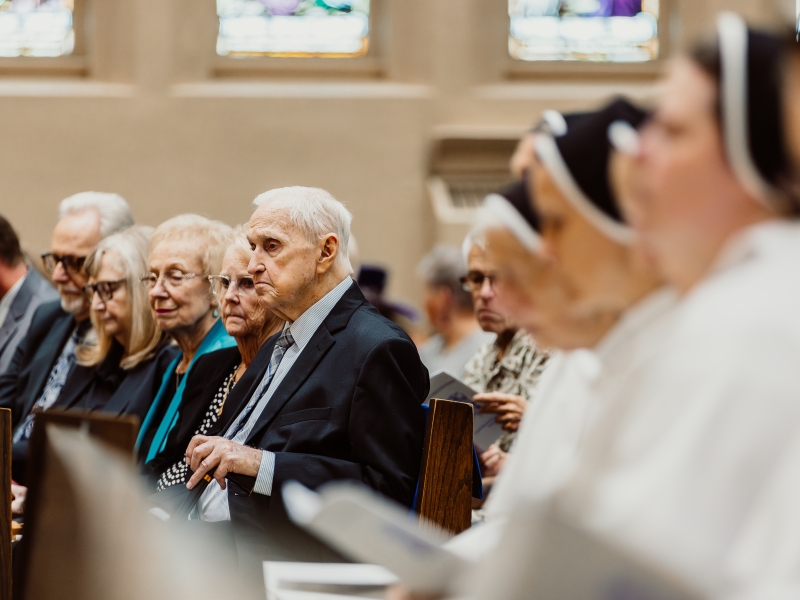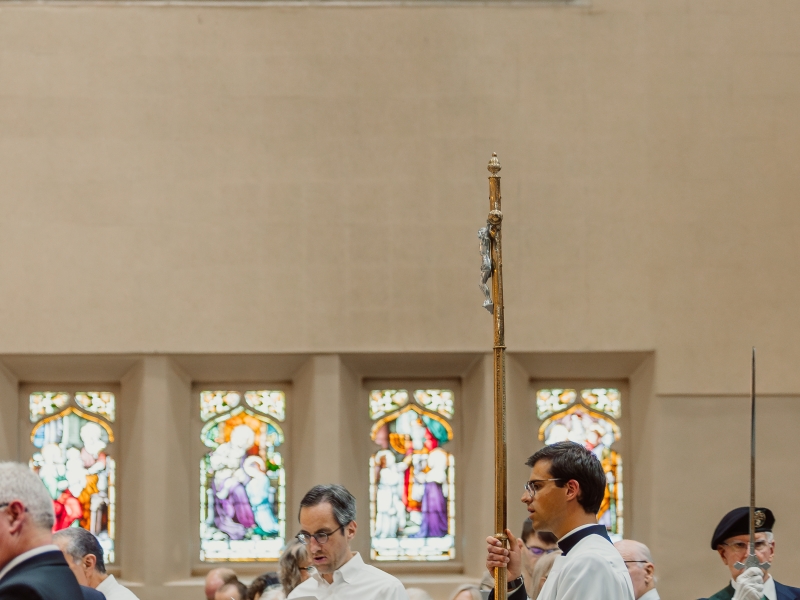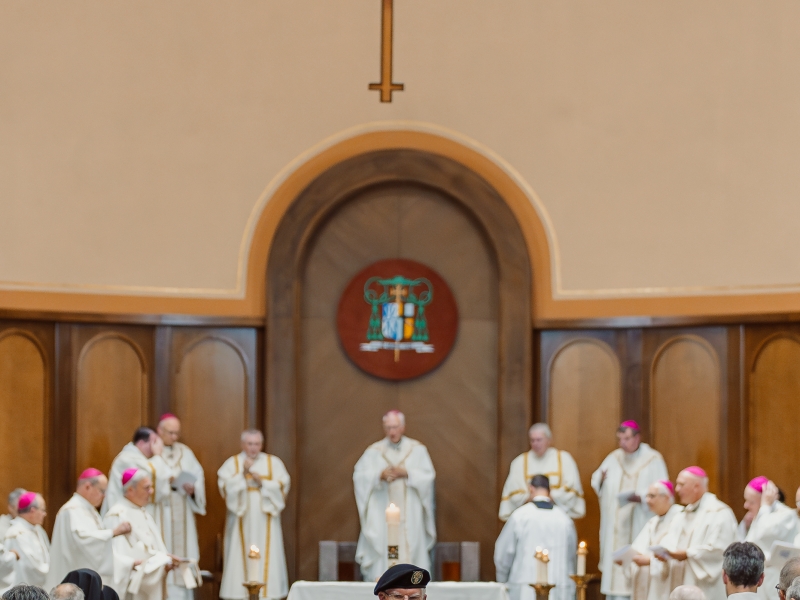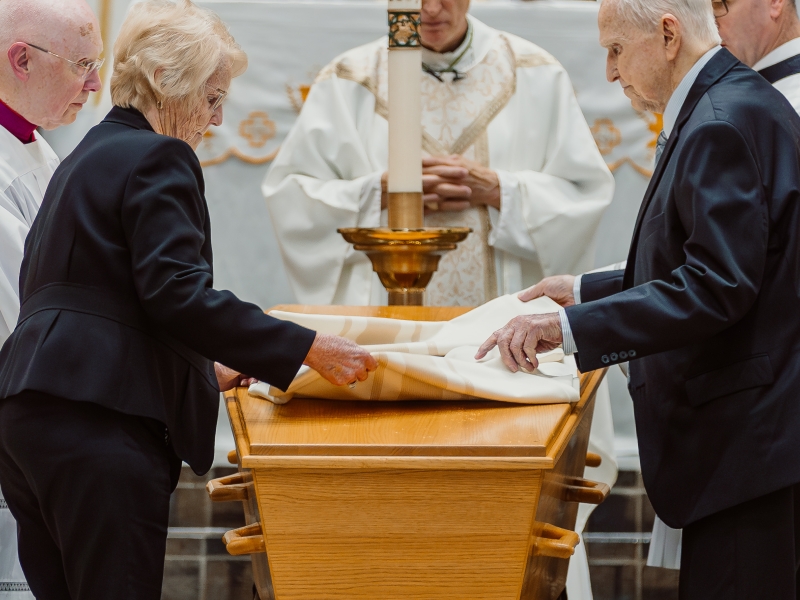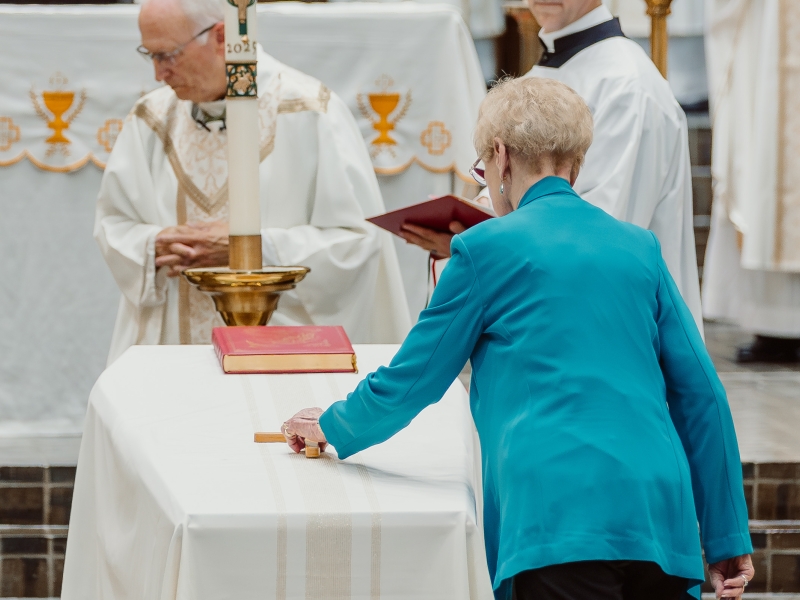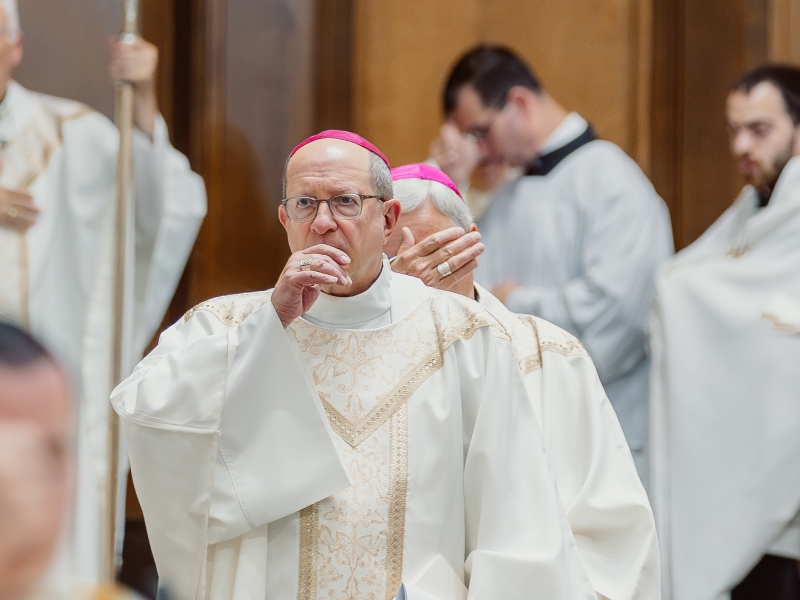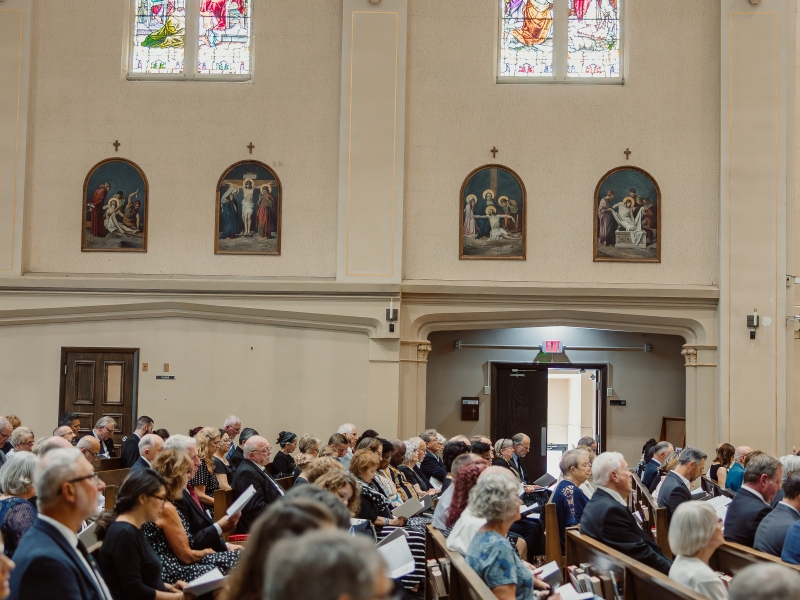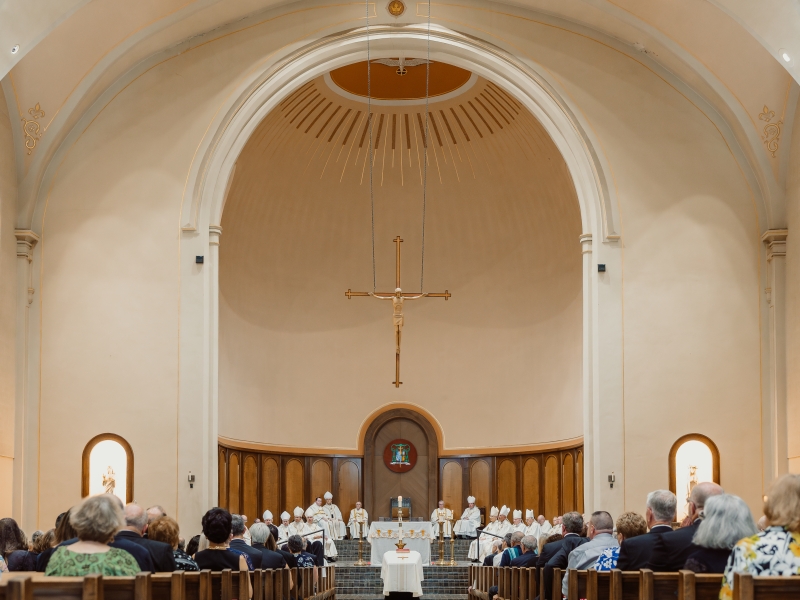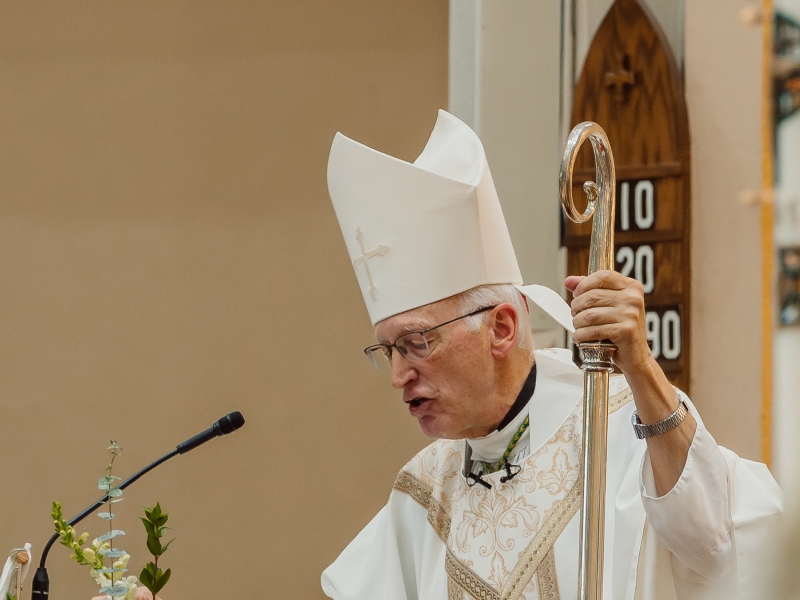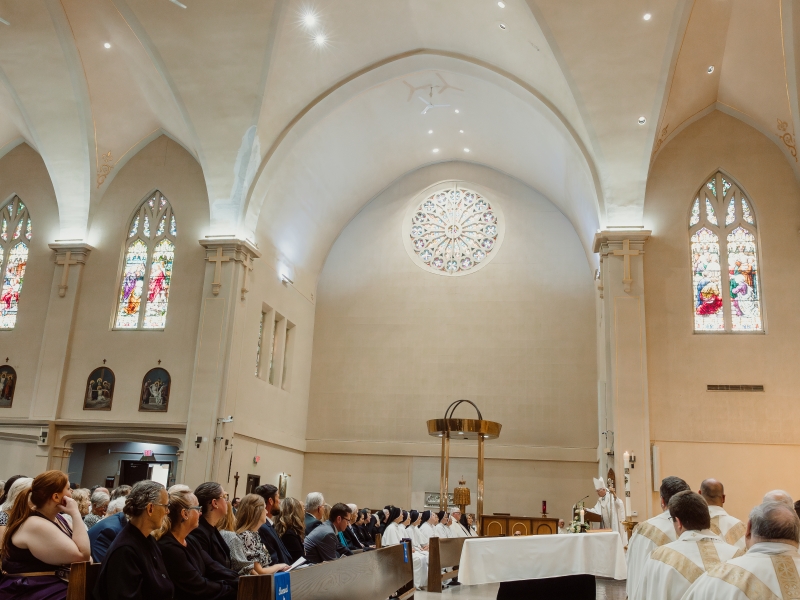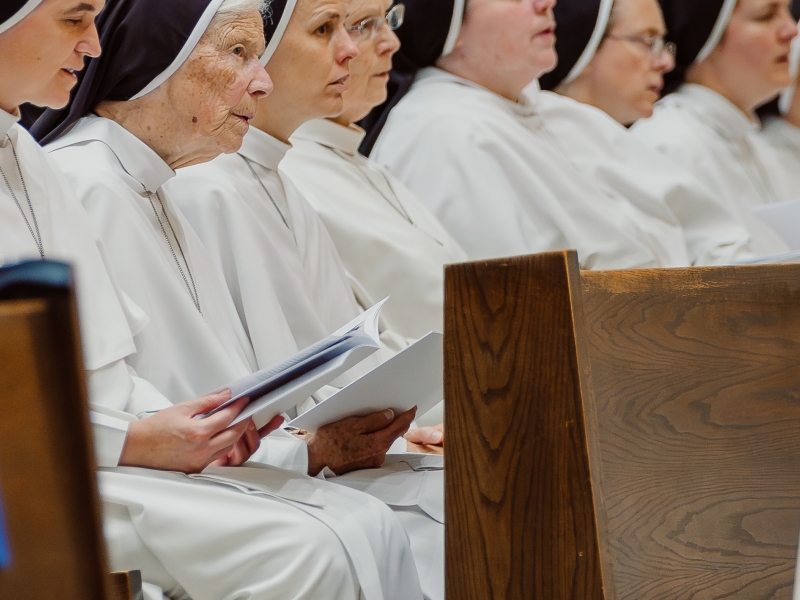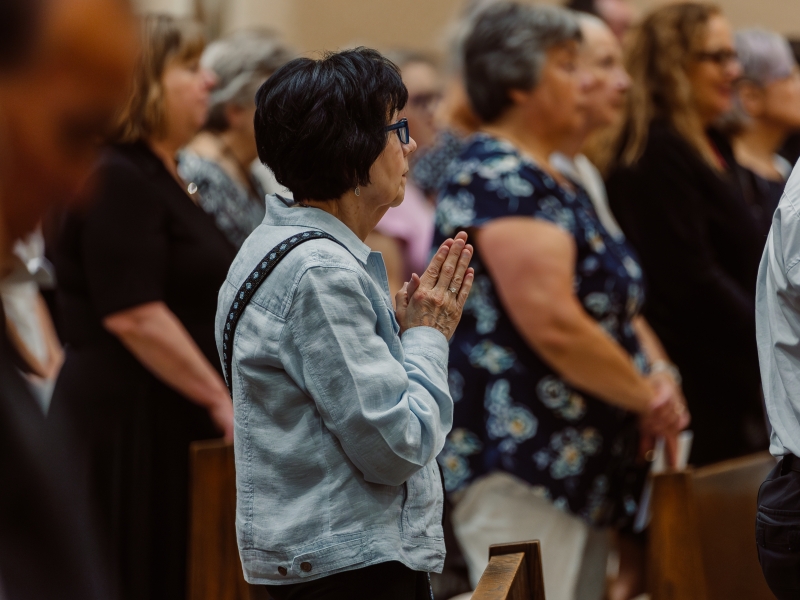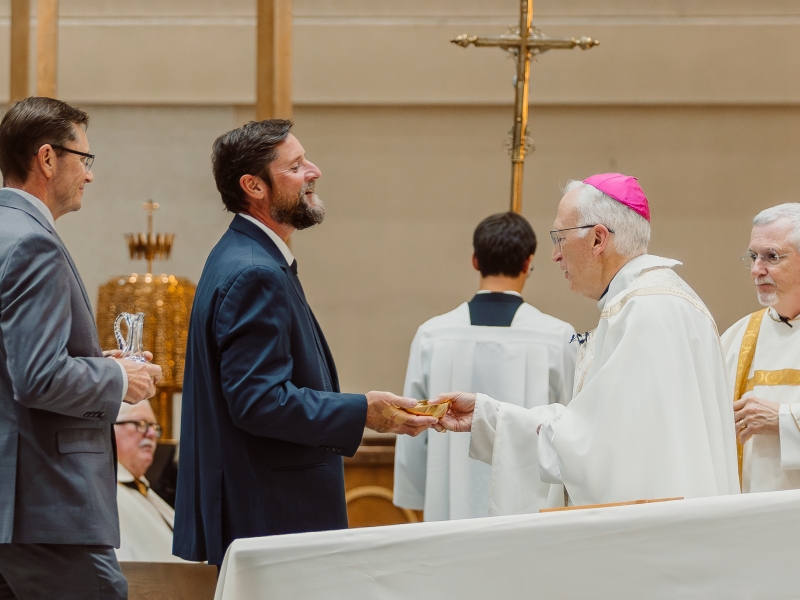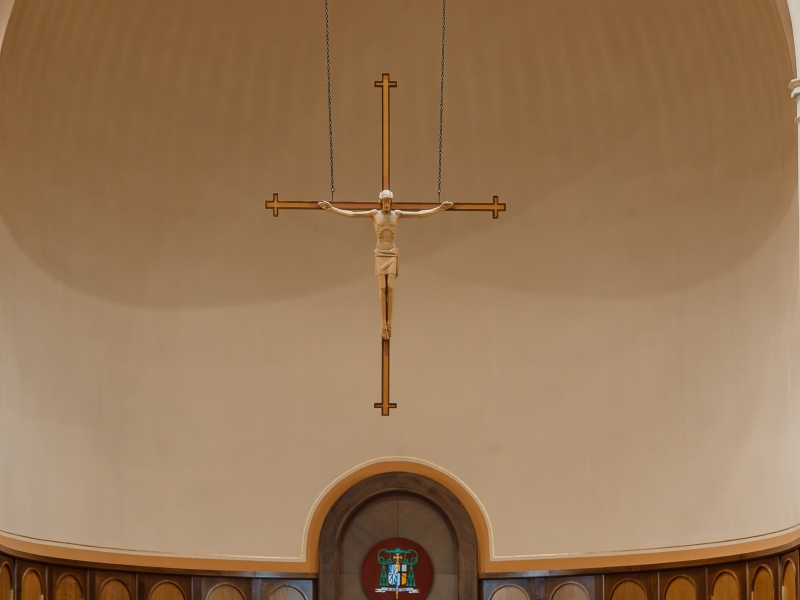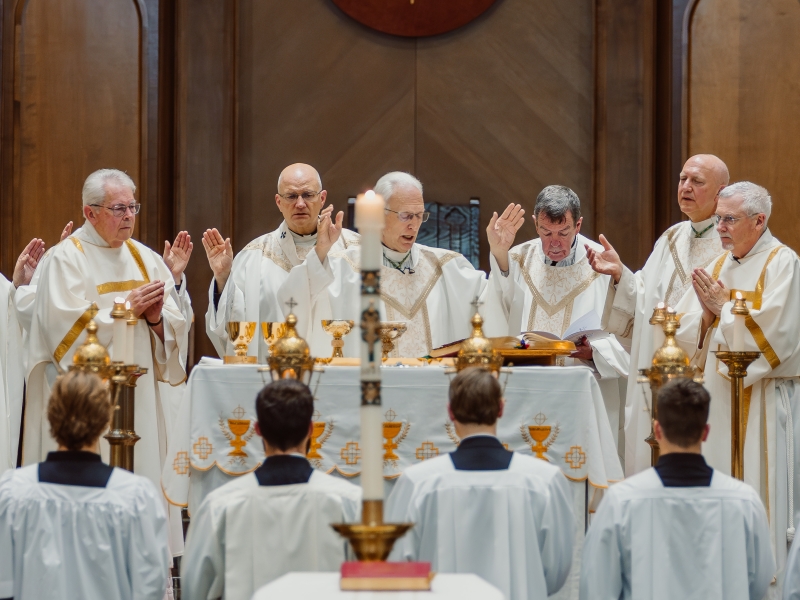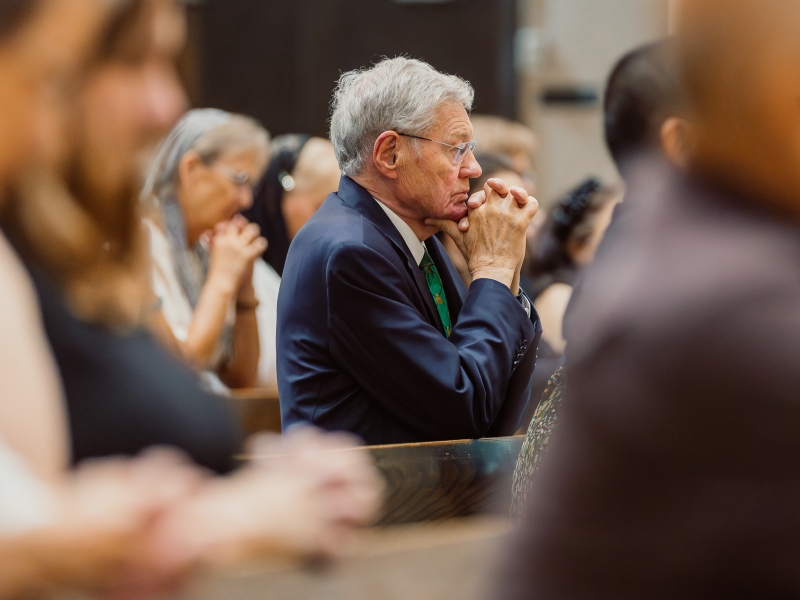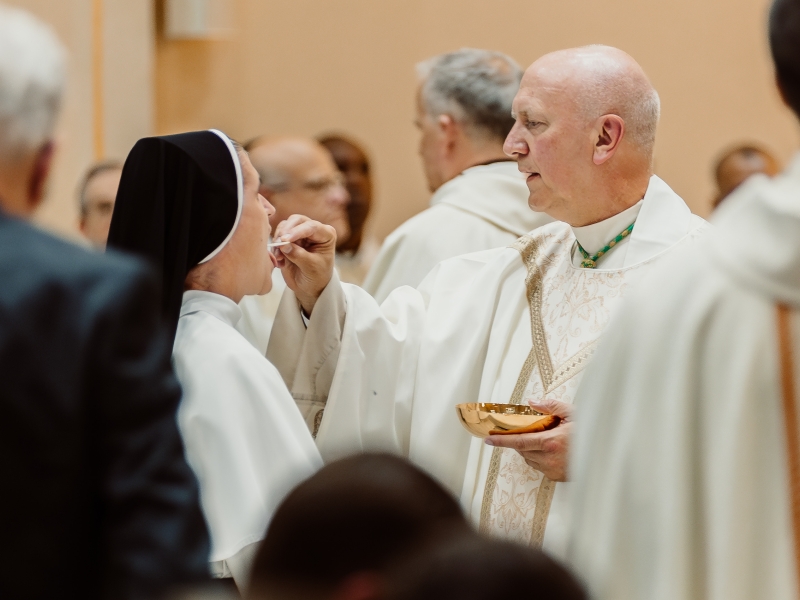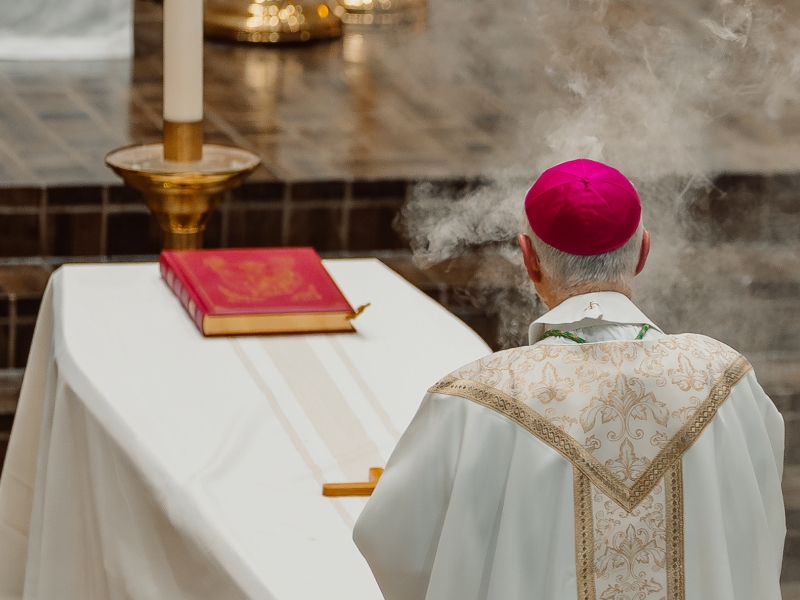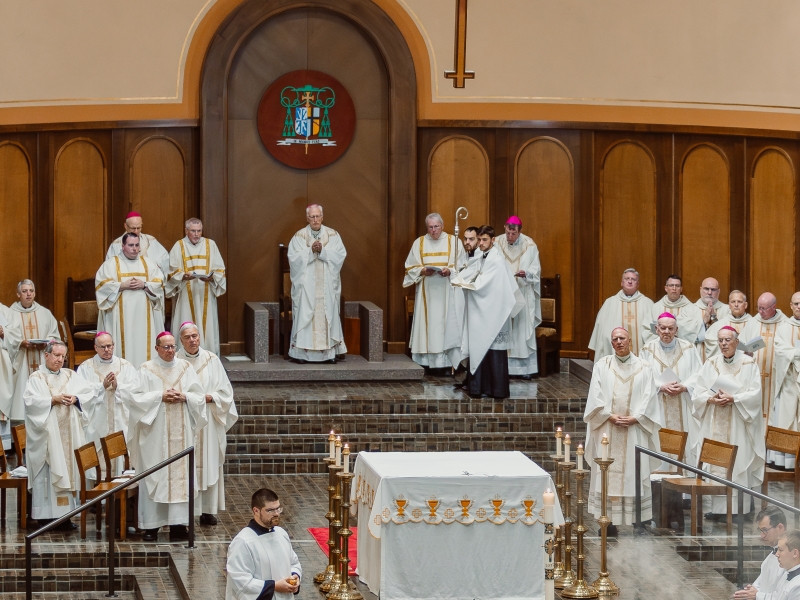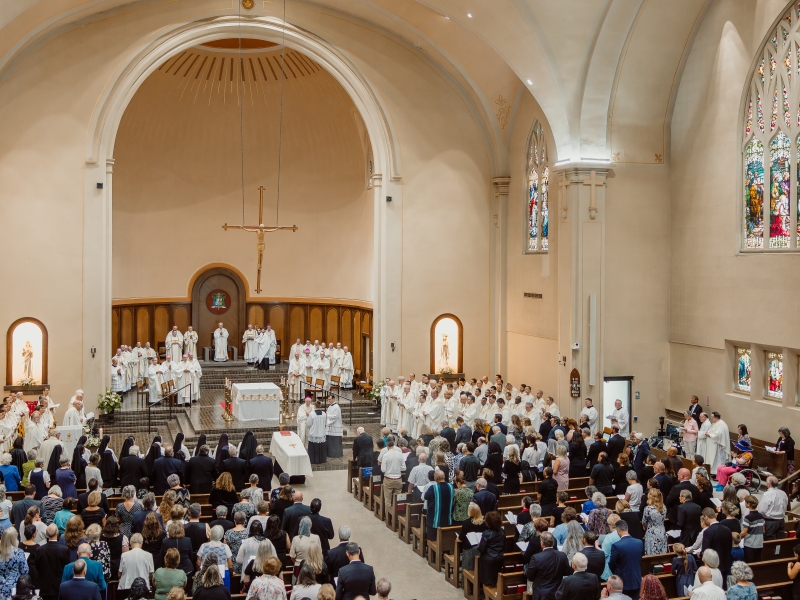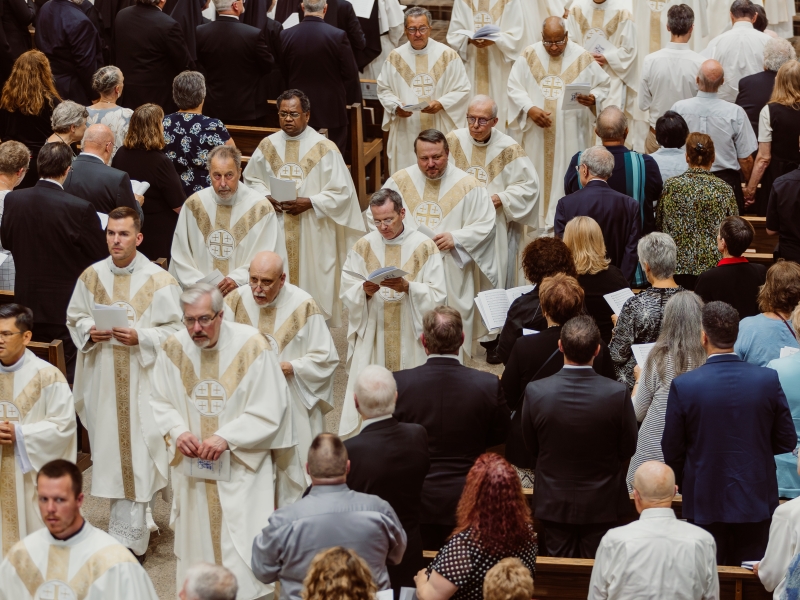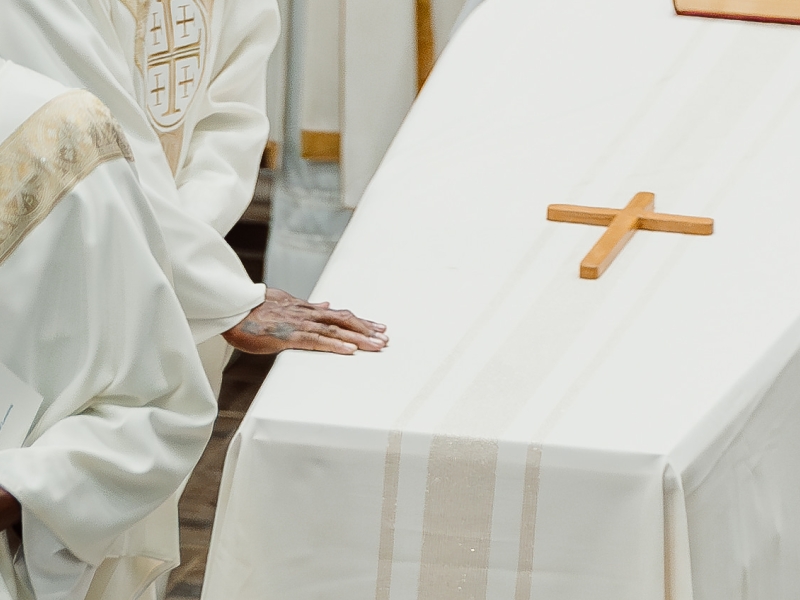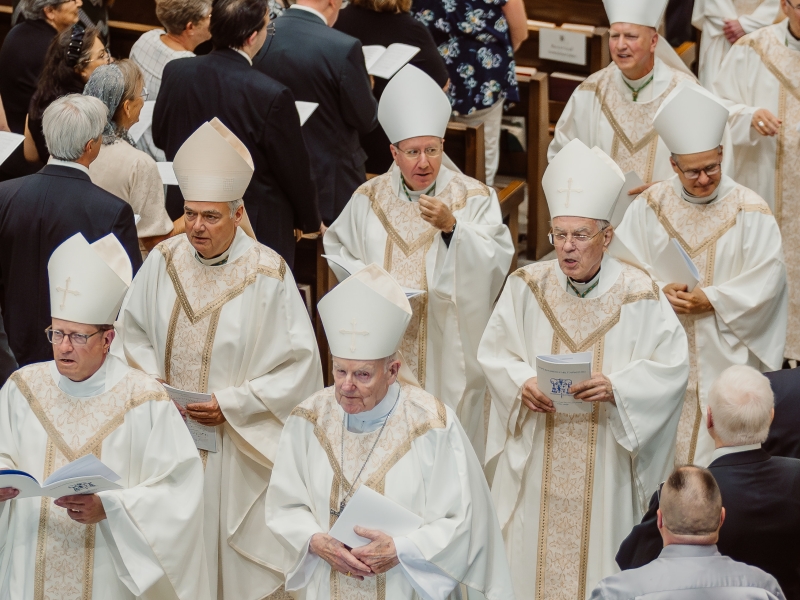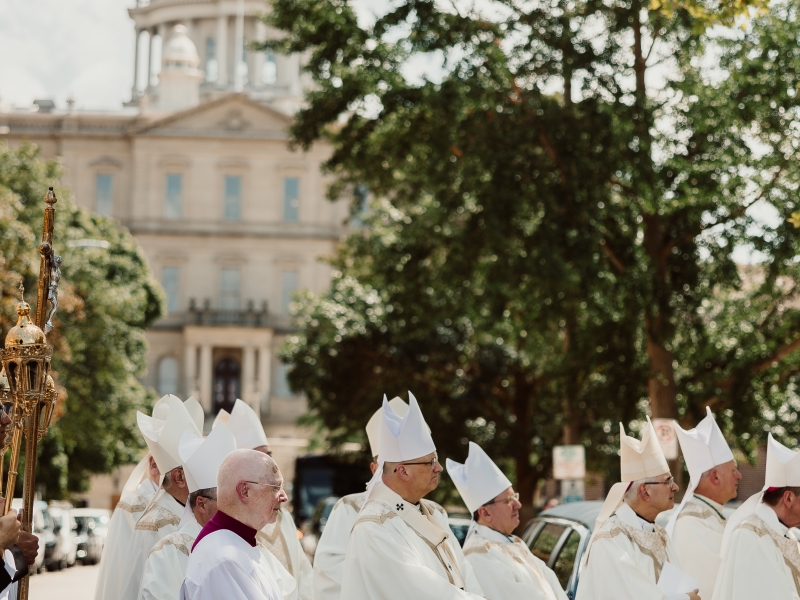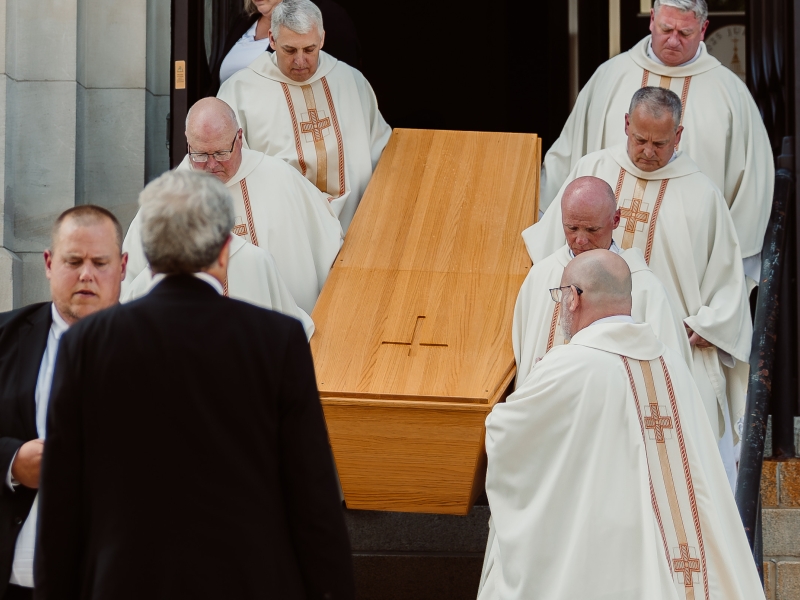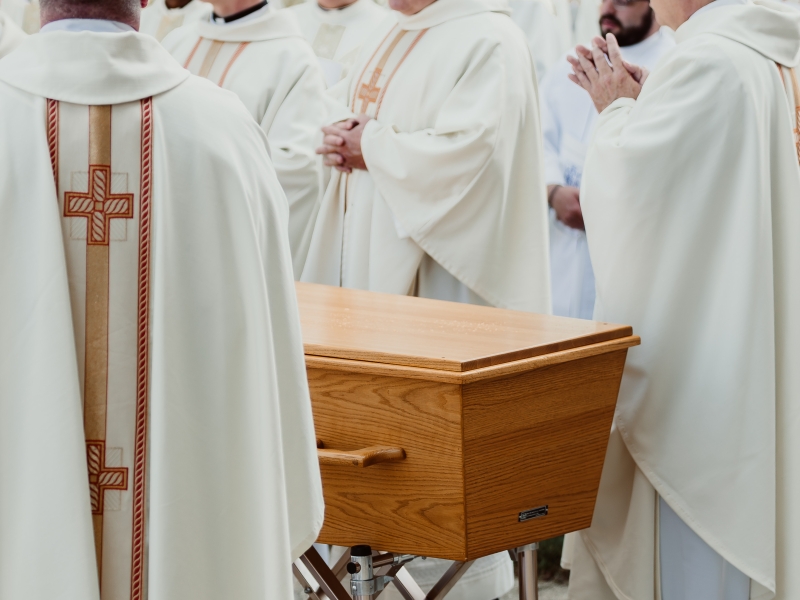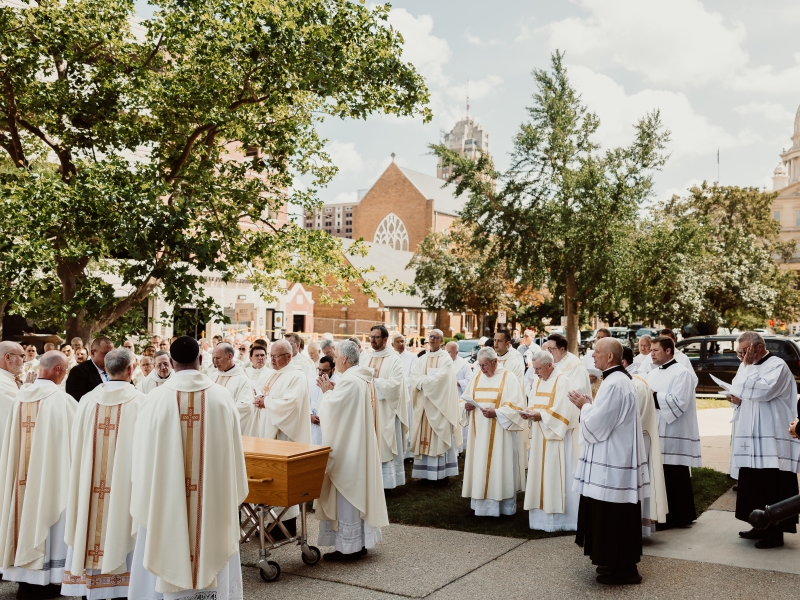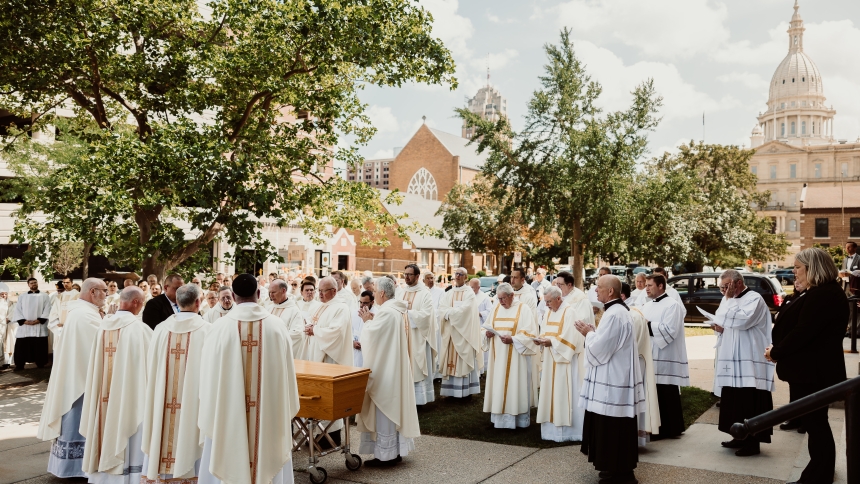
Here are some images, above and below, from the Requiem Mass for the late Bishop Carl F. Mengeling, Emeritus Bishop of Lansing, July 10, 2025. Among those present at Saint Mary Cathedral in Lansing were mourners representing all the parishes of the Diocese of Lansing along with scores of clergy, including eleven bishops. The principal celebrant and homilist was Bishop Earl Boyea. Here is his homily reproduced in full below. Bishop Boyea said:
My Brothers and Sisters in Christ,
When a bishop is replaced in the leadership of a diocese, he is commonly known as an emeritus bishop. In the distant past he would instead have been named the bishop of some historical but no longer functioning diocese, something we call a titular see. Instead, now he is the emeritus bishop of the diocese he has overseen for so many years. So rather than being associated in retirement with some distant and unknown diocese, this elderly bishop keeps a strong connection to his diocese.
Bishop Carl has always been and clearly desired to remain closely connected to us. He has chosen these three readings from Scripture which all have to do with being a good shepherd. There are three ways in which he has been such a good shepherd in the Diocese of Lansing as we shall see by examining the texts we have just heard.
First of all, Bishop Carl tended us sheep by being an example to us as St. Peter urges in our second reading. The Holy See sent him a congratulation letter on his retirement dated February 29, 2008, which highlighted some of his leadership activities:
It was your initiative which inspired two Diocesan Common Conferences, launched the publication of FAITH Magazine and made use of modern technology and the Internet "to proclaim the message of Jesus from the mountaintops." Your effective governance enabled you to accomplish important pastoral initiatives, such as the opening of St. Andrew Dung-Lac Church for the Vietnamese Catholic Community and the convocation of the Strategic Pastoral Planning Commission, yet ti was always rooted in the sole desire [to] lead the people of the Church of Lansing to greater holiness for the glory of God. In all your good efforts, including your courageous example during health struggles, you exemplified the words of John the Baptist that you chose for your motto: "He Must Increase."
Bishop Carl did all this not by lording it over us, but by the steadfast example of his life, the example to his flock. What is especially noteworthy about this text from Rome is that Bishop Carl has proclaim Jesus Christ from the mountaintops and he has allowed Christ ot increase. Many of us would testify to a lack of shyness on his part; nonetheless, it was the message of the Gospel which he proclaimed loudly and clearly.
Secondly, Bishop Carl's aim has always been to bring us home, something the Prophet Ezekiel proclaimed as God's goal for his people. Bishop Carl would research and write up thematic summaries of Church teachings. His last one was this past January 13th ,' entitled, "Rich in Mercy." It is the mercy of God which not only allows us to return home, but actually gives us the grace, the power, to make that journey. Bishop Carl echoed the words, "Each of us is from the mind of God: Each is willed; Each is loved; Each is necessary." On the basis of this Mercy being the manifestation of the very loving heart of God our Father, who is Rich in Mercy, we are raised up and enthroned in the heavenly realm, as Bishop Carl concludes. We know that rescuing souls from places where they are scattered, leading the folks out from foreign lands is never easy. But Bishop Carl held up that clear and bright light to draw us in and to lead us on our way home.
He has pastured us well. Thirdly, Bishop Carl knew that there was only one way to achieve these aims, by laying down his life, even as Jesus did, as the only way to lead the People of God. In an ecumenical homily anticipating the great jubilee of 2000, Bishop Carl concluded with these words:
As members of his body we make the action of Christ real to our contemporaries. We are not just representatives of Christ—rather we prolong his mission. He cleansed us and gives us a new spirit and new heart. We become his people. He has not condemned, but saved us. We have come from dark ot light, from evil works to good works, from death to life.
Jesus tells us today that he lays down his life since that is what a good shepherd does. He is not a mercenary but rather one with his sheep, knowing them, loving them, and leading them, even at the cost of self.
Today we commend to the Lord our brother, Carl Mengeling, the fourth Bishop of the Diocese of Lansing. We pray for the forgiveness of his sins and for that very mercy which he knew, cherished and shared. We pray that he might be brought home, to his true home with the Lord. He laid everything down for us. We now offer this sacrifice of praise of God for the happy repose of his soul.
God bless you all.

